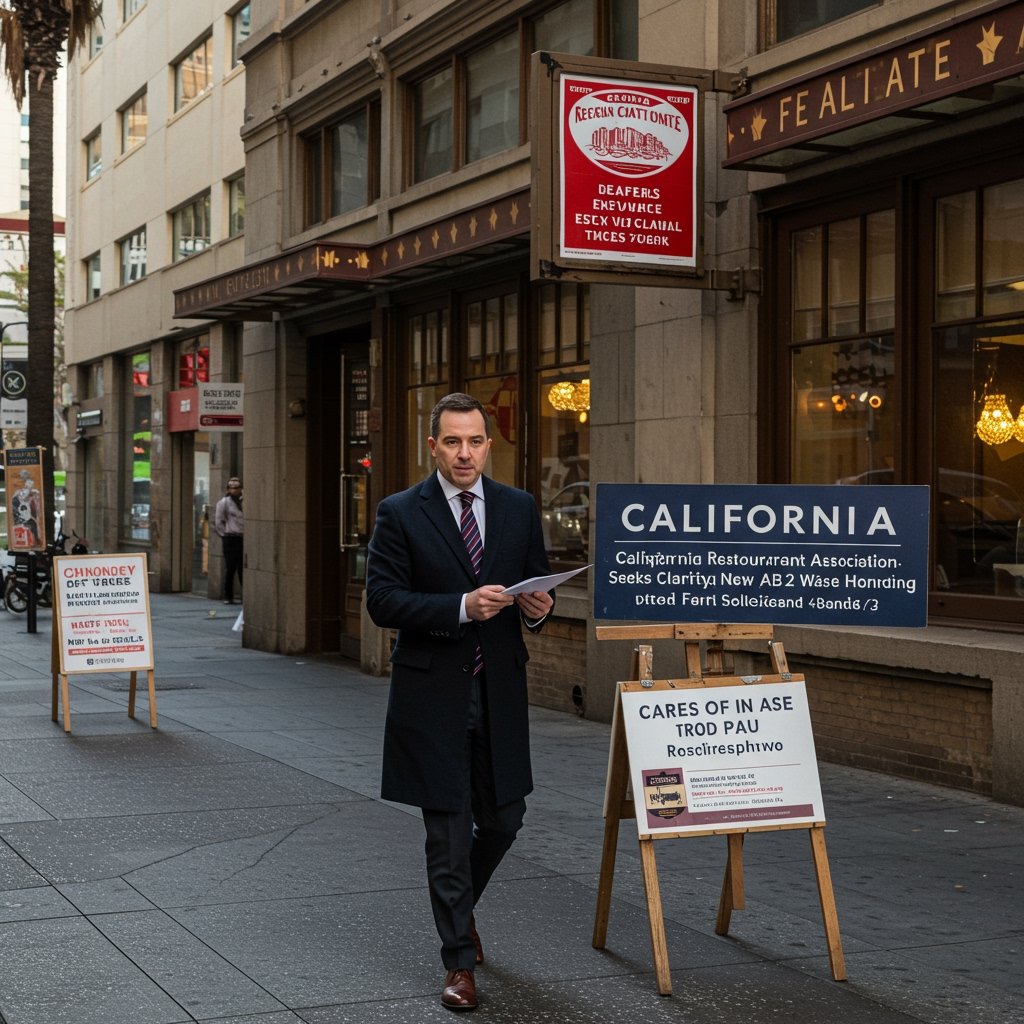Restaurant Association Raises Concerns Over Mandate Implementation
Sacramento, CA – The West Coast Restaurant Association (WCRA) issued a comprehensive statement today, urging the California Department of Resources Recycling and Recovery (CalRecycle) to provide immediate and detailed clarification regarding the state’s recently enacted food waste composting mandate, established under Assembly Bill 22 (AB 22). The association’s public appeal highlights significant concerns among its membership base, particularly focusing on the potential financial burden this new regulation could impose on small independent restaurants and the substantial logistical challenges anticipated in densely populated urban areas across California, such as Los Angeles and San Francisco.
The WCRA emphasized the need for practical, workable solutions that acknowledge the operational realities of the restaurant industry. To mitigate the immediate and potentially disruptive impacts of the mandate, which is set to take effect statewide starting in 2026, the association has proposed potential strategies including the implementation of pilot programs in select regions or a phased implementation approach based on factors such as restaurant size and geographical location.
Unpacking Assembly Bill 22 and Its Goals
Assembly Bill 22, signed into law earlier this week, represents a significant step in California’s ongoing efforts to combat climate change and reduce landfill waste. The legislation mandates that businesses generating organic waste, including food scraps, landscaping debris, and other compostable materials, divert these materials from traditional landfills. The primary objective is to reduce the emission of potent greenhouse gases, specifically methane, which is produced when organic matter decomposes in anaerobic conditions found in landfills.
The state’s broader climate goals rely heavily on initiatives like AB 22 to meet ambitious targets for reducing greenhouse gas emissions and increasing landfill diversion rates. While the environmental intent behind the law is widely acknowledged, the practical implementation across diverse business sectors, including the vast and varied restaurant industry, presents considerable operational and economic complexities. Restaurants, by their nature, produce a significant volume and specific type of organic waste, making them a key focus area under this new mandate.
Financial Strain on Independent Eateries Highlighted
A central concern articulated by the WCRA is the potential financial burden on restaurants, particularly the numerous small and independent establishments that form the backbone of California’s culinary landscape. Implementing the requirements of AB 22 typically involves procuring separate bins for organic waste, establishing new collection schedules, and potentially contracting with specialized haulers equipped to transport organic materials to composting or anaerobic digestion facilities.
These new services and infrastructure requirements come with associated costs that can significantly impact the already thin profit margins characteristic of the restaurant industry, especially for smaller operators who lack the economies of scale enjoyed by larger chains. The WCRA’s statement underscores that without clear guidance, financial assistance, or flexible implementation options, these added expenses could pose a significant challenge to the viability of many independent restaurants already navigating high operating costs, labor shortages, and fluctuating market conditions.
Urban Logistical Hurdles in Major Cities
The logistical challenges of complying with the mandate are expected to be particularly acute in densely populated urban areas like Los Angeles and San Francisco. Restaurants in these metropolitan centers often operate with limited physical space, both within their kitchens and for external waste storage. Finding adequate room for additional waste bins, specifically for organic materials, can be a major hurdle in areas where space is at a premium and costly.
Furthermore, the logistics of transporting organic waste through congested city streets present operational complexities for both restaurants and waste haulers. Frequent collections are necessary for organic waste to prevent odor issues and pest attraction, adding to the cost and complexity. The WCRA points out that these challenges require specific consideration and potentially tailored solutions that differ from those applicable to restaurants in suburban or rural settings with more space and less traffic density. The infrastructure required to handle increased organic waste volumes in major urban hubs also needs robust planning and investment.
Proposals for a Smoother Transition
Recognizing the state’s environmental goals while advocating for its members, the WCRA has put forth constructive proposals aimed at achieving compliance through a more manageable transition. The suggestion of pilot programs would allow CalRecycle and the industry to test different collection models, infrastructure needs, and operational workflows in controlled environments before a full statewide rollout. This could identify best practices and potential pain points early on.
The proposal for phased implementation based on restaurant size and location acknowledges that not all businesses have the same capacity to absorb new costs and operational changes simultaneously. For instance, smaller independent restaurants might benefit from a later compliance deadline or specific assistance programs compared to larger establishments. Similarly, restaurants in urban cores with significant space constraints could potentially follow a different implementation timeline or utilize alternative collection methods compared to those with more accessible loading docks and storage areas. These suggestions aim to make compliance achievable without jeopardizing business stability.
The Path Forward: Dialogue with CalRecycle
The West Coast Restaurant Association’s statement serves as a clear call for collaborative dialogue with CalRecycle. The association seeks not only clarification on the specific requirements and compliance pathways under AB 22 but also an opportunity to work together on developing practical implementation strategies.
Restaurant operators are keen to understand details regarding approved hauling services, acceptable composting or digestion facilities, potential state or local support programs, and specific guidelines that address the unique challenges faced by their industry. The WCRA believes that proactive engagement and clear communication between the regulatory body and industry stakeholders are essential to ensure the successful implementation of AB 22, meeting the state’s environmental objectives while supporting the continued vitality of California’s restaurant sector. They await CalRecycle’s response and look forward to participating in discussions to navigate the path towards compliance by the 2026 deadline.


















